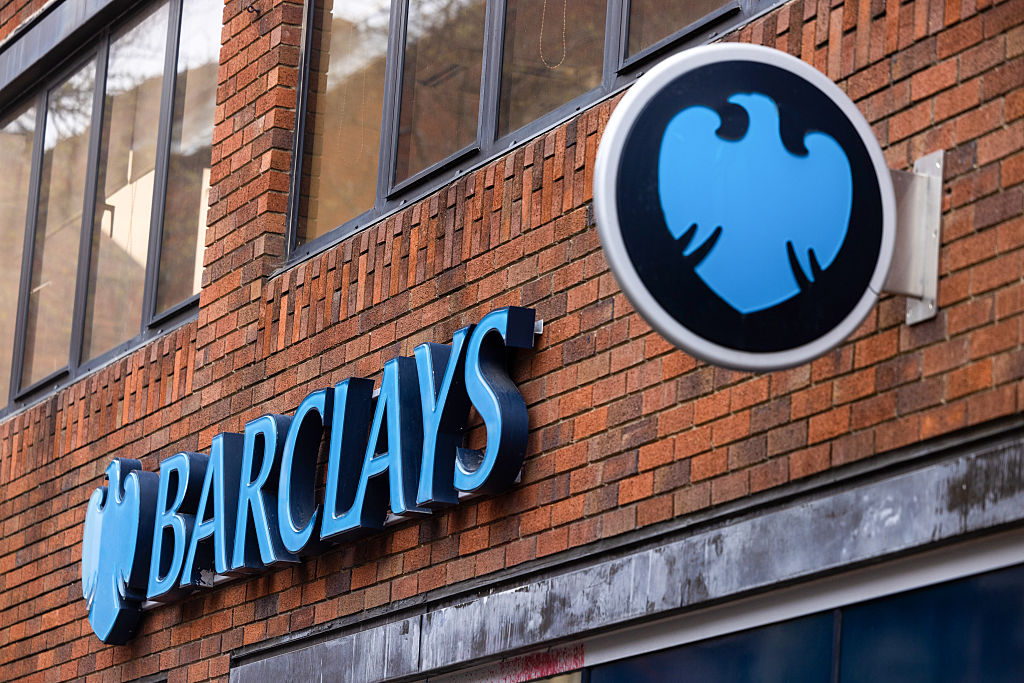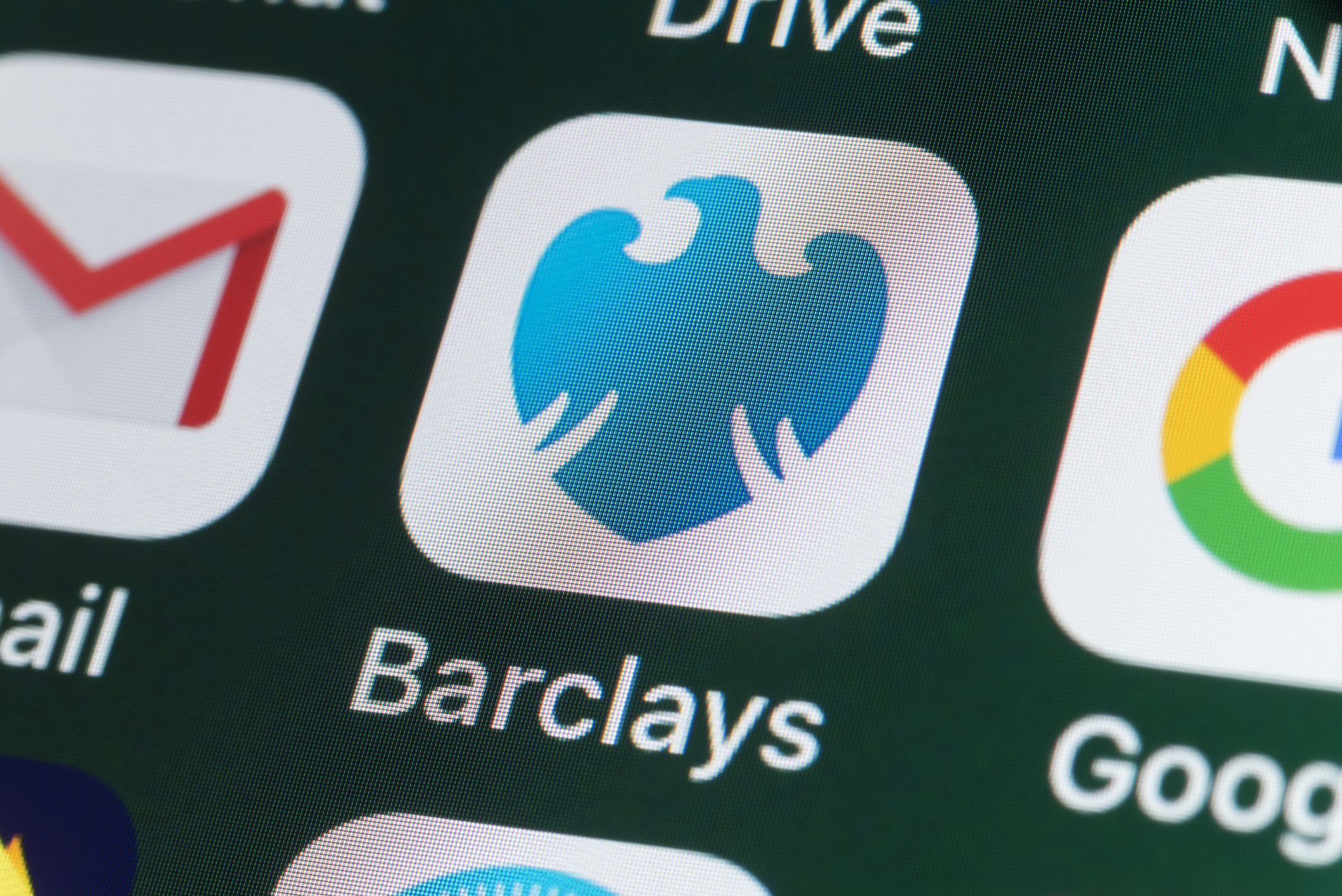Negative interest rates and the end of free bank accounts
Negative interest rates are likely to mean the introduction of fees for current accounts and other banking products. But that might make the UK banking system slightly less awful, says Merryn Somerset Webb.


Get the latest financial news, insights and expert analysis from our award-winning MoneyWeek team, to help you understand what really matters when it comes to your finances.
You are now subscribed
Your newsletter sign-up was successful
Want to add more newsletters?

Twice daily
MoneyWeek
Get the latest financial news, insights and expert analysis from our award-winning MoneyWeek team, to help you understand what really matters when it comes to your finances.

Four times a week
Look After My Bills
Sign up to our free money-saving newsletter, filled with the latest news and expert advice to help you find the best tips and deals for managing your bills. Start saving today!
The weekend papers were full of worry about negative interest rates coming to the UK. This isn’t a given (the implications for the banking sector aren’t good). But it is more likely than it was a few months ago, given that the Bank of England is clearly looking not just at the academic case for them but also the practicalities of introducing them (computer systems are only designed to deal with positive rates).
You can hear what John and I think about all this on the latest MoneyWeek Podcast (clue: not much) and in John’s Money Morning on the subject (if you don’t get our brilliant daily newsletter, sign up here).
Most commentators, one column in the Observer aside, seem to share our concern about the long term effects of turning the concept of money upside down. Former Barclays chairman John McFarlane summed it up in quotes in the Telegraph: negative rates, he said, risk causing a “massive dislocation” in markets. An editorial in the Times notes that it would “have damaging side effects that would take a long time to heal.” That might be fine, if there was any real evidence that they would achieve the main aim – stimulating the economy. There isn’t. “Whether they achieve the desired effect of stimulating demand and inflation, is debatable.”
MoneyWeek
Subscribe to MoneyWeek today and get your first six magazine issues absolutely FREE

Sign up to Money Morning
Don't miss the latest investment and personal finances news, market analysis, plus money-saving tips with our free twice-daily newsletter
Don't miss the latest investment and personal finances news, market analysis, plus money-saving tips with our free twice-daily newsletter
Still, in our world of something-must-be-done-ism, just because there is no evidence a controversial and disruptive policy works does not mean it won’t be introduced anyway. So what will negative rates really mean for you in the immediate?
The key thing here is that the UK’s banks will be being charged for having cash deposited at the central bank. They will be paying negative interest rates – and they’ll need to finance that by charging someone else to cover it. In theory, that someone else could be you – you could end up paying for the privilege of having cash in the bank. In reality, that is not particularly likely; it hasn’t happened in other places where negative interest rates have been introduced. Instead, negative rates are likely to be charged on very large balances only (mostly corporate and perhaps the odd very large retail account).
The thing the rest of us have to look out for is the introduction of negative rates as the trigger for the imposition of banking fees in the UK. The UK’s banks have been skirting around this issue for years. The fact that no obvious fees are charged on retail banking accounts does not of course mean that these accounts are actually free (the difference is made up with overdraft charges and the paying of no interest on current accounts). They do however – from the customer’s point of view – feel free. So what will change?
The CEO of Virgin Money offered some suggestions in the Daily Mail this week. He expects banks to “make slow and incremental” changes over the next few years to test exactly what we are prepared to pay for. It could mean upping rates on credit cards, mortgages and foreign exchange (I’m afraid no one is going to get paid for having a mortgage). Or it could mean paying for obvious services – fees for replacement debit cards, for example (something Monzo and Starling are already experimenting with). Eventually, it should mean that most accounts are fee paying. Negative interest rates are not the catalyst I would have chosen for this. But fee paying accounts are not necessarily a bad thing – after all, it does cost something to provide them.
The UK retail banking system has long been awful – shot through with hideously untransparent charges designed to catch the unwary, admin phobic and overdrawn out. The result has been an oddly unprogressive system whereby the poor pay, the well off often do not, and scandals appear with worrying regularity (PPI etc). It makes no sense. The introduction of low flat fees across the system might not make the banks perfect (decades of devotion to low-level dirty dealings will be hard to shake off) but they might at least change the dynamic that has been such a big contributor to their failures over the years.
Get the latest financial news, insights and expert analysis from our award-winning MoneyWeek team, to help you understand what really matters when it comes to your finances.

-
 New PM Sanae Takaichi has a mandate and a plan to boost Japan's economy
New PM Sanae Takaichi has a mandate and a plan to boost Japan's economyOpinion Markets applauded new prime minister Sanae Takaichi’s victory – and Japan's economy and stockmarket have further to climb, says Merryn Somerset Webb
-
 Plan 2 student loans: a tax on aspiration?
Plan 2 student loans: a tax on aspiration?The Plan 2 student loan system is not only unfair, but introduces perverse incentives that act as a brake on growth and productivity. Change is overdue, says Simon Wilson
-
 Nationwide promises to protect all its branches from closures until at least 2030
Nationwide promises to protect all its branches from closures until at least 2030The building society has extended its pledge to keep all high street Nationwide and Virgin Money branches open, now until at least 2030.
-
 Barclays bank switch: how to get £400 'free' cash by moving accounts
Barclays bank switch: how to get £400 'free' cash by moving accountsBarclays has unveiled a £400 current account switching offer, running alongside its £500 ISA transfer deal. Which accounts are on offer, and are you eligible?
-
 Green mortgages: how do they work and how much can you save?
Green mortgages: how do they work and how much can you save?Most high-street lenders now offer some kind of green mortgage deal. We look at who’s eligible, how to apply and the mortgage rates and cashback on offer
-
 Thousands of Brits switch to Nationwide, Monzo and NatWest – which banks are least popular?
Thousands of Brits switch to Nationwide, Monzo and NatWest – which banks are least popular?We look at the most and least popular banks and building societies as current account bank switches reach a record high. Is it worth moving your money?
-
 Barclays to pay millions in compensation after IT outage chaos
Barclays to pay millions in compensation after IT outage chaosBarclays intends to compensate customers after an IT outage caused payment problems for three days
-
 Barclays reports large spike in romance scams - here's how to avoid them
Barclays reports large spike in romance scams - here's how to avoid themThe UK bank found a 139% increase in the total value of romance scams
-
 Nationwide, HSBC, Barclays and Virgin Money customers hit by payment issues
Nationwide, HSBC, Barclays and Virgin Money customers hit by payment issuesThe problems have been compounded as Friday is the last day of the month when many people are paid by their employer
-
 Best and worst UK banks revealed
Best and worst UK banks revealedWe reveal the best UK banks – and the worst – when it comes to managing your money and good customer service. How does your provider compare?